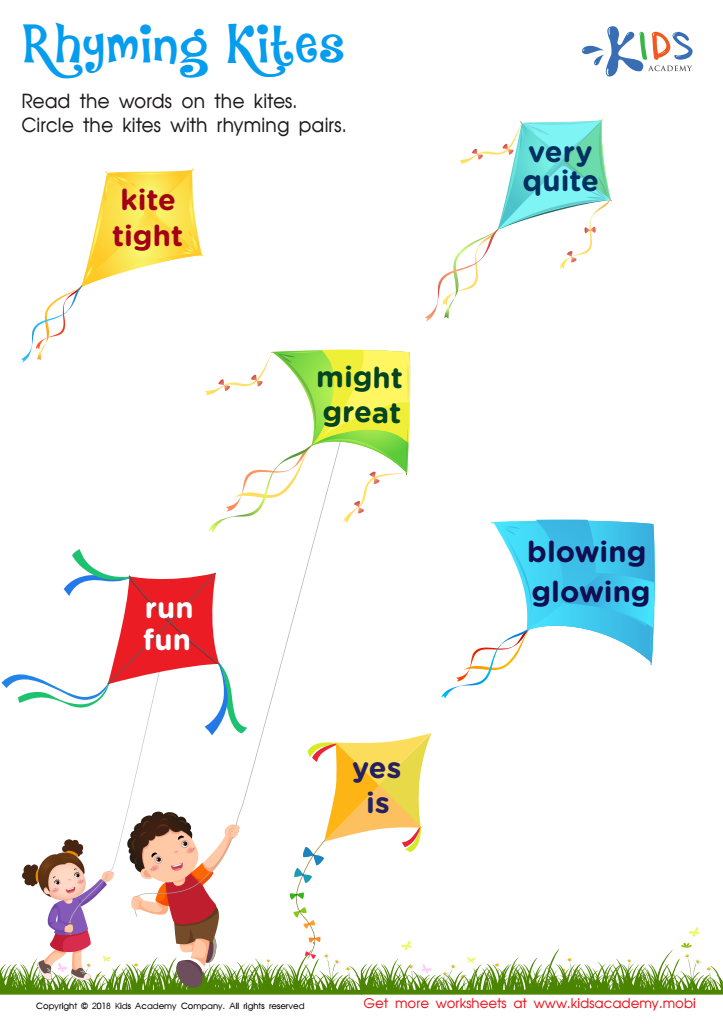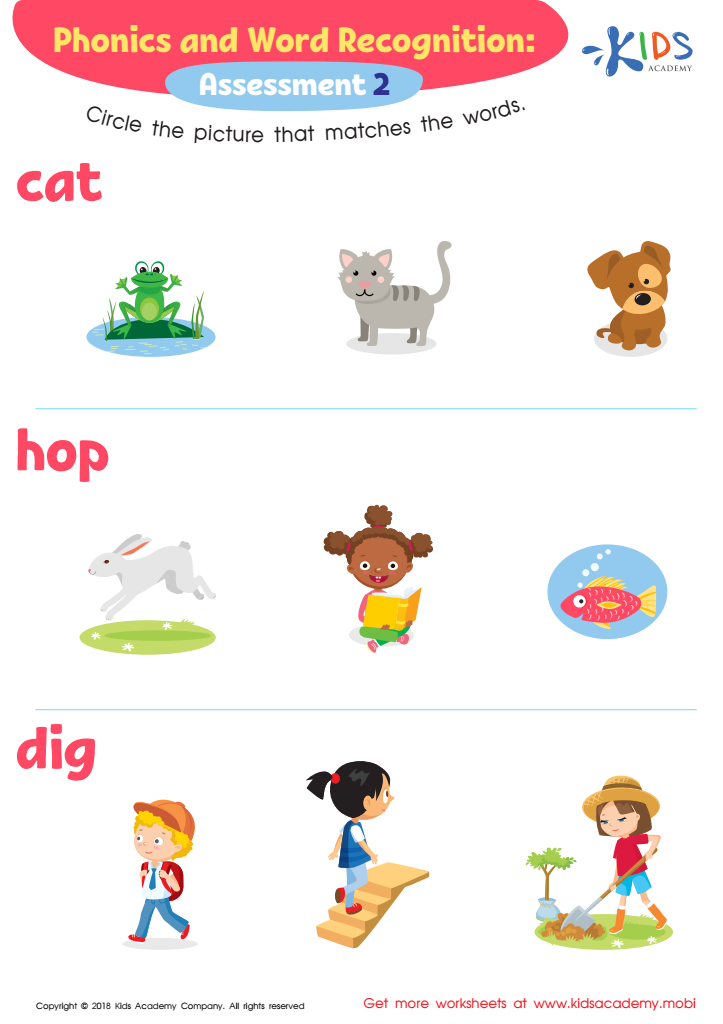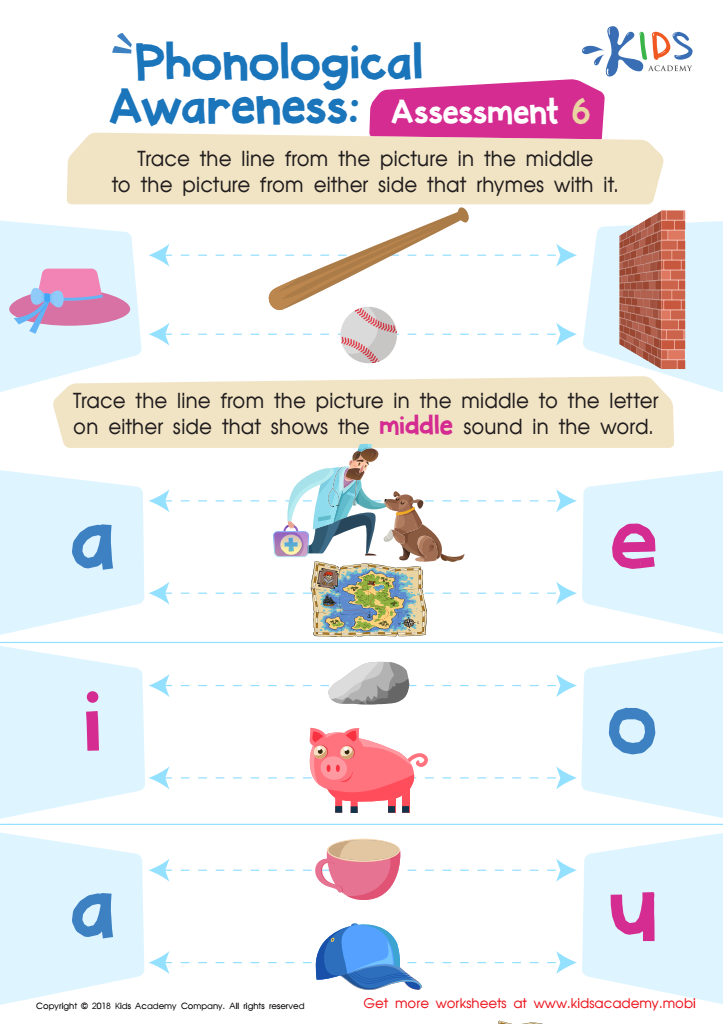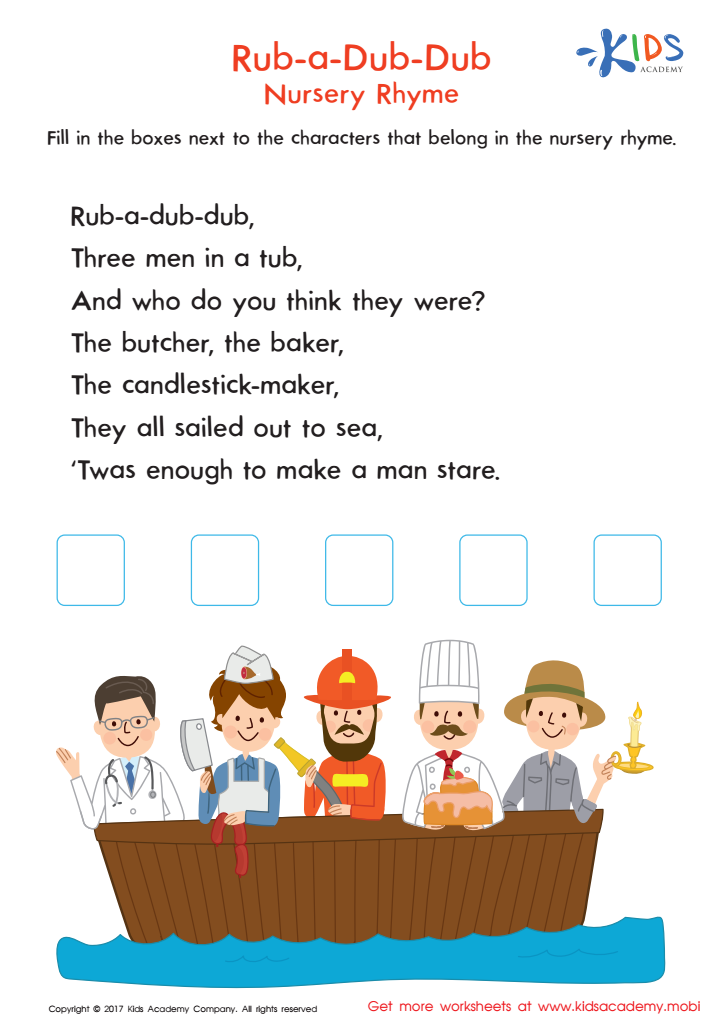Rhyming skills Phonics Worksheets for Ages 3-8
5 filtered results
-
From - To
Boost your child's literacy with our engaging Rhyming Skills Phonics Worksheets designed for ages 3-8! These interactive resources enhance phonemic awareness by encouraging young learners to identify and produce rhyming words through fun activities. Our worksheets include vivid illustrations and playful exercises that make learning enjoyable while strengthening essential reading skills. Ideal for both classroom and home use, they cater to various learning styles, allowing children to experiment with sounds and words creatively. Equip your child with rich vocabulary and reading confidence through our thoughtfully crafted rhyming worksheets. Download them today and make phonics learning a delightful adventure!


Rhymes in Poems Worksheet


Rhyming Kites Worksheet


Phonological Awareness: Assessment 2 ELA Worksheet


Phonological Awareness: Assessment 6 Worksheet


Rub a Dub Dub Printable
Rhyming skills and phonics are foundational elements of early literacy that have a significant impact on a child's reading and writing development. For ages 3-8, these skills are crucial in fostering a love for language and enhancing cognitive abilities. When children engage in rhyming, they develop phonemic awareness—an essential skill that helps them identify, manipulate, and articulate sounds in words. This awareness is the first step towards decoding words when reading.
Teachers and parents should care about these skills because they not only promote strong reading abilities but also improve vocabulary, comprehension, and communication skills. Rhyming often makes learning fun and engaging. Through songs, games, and playful rhymes, children can explore language naturally, making connections that reinforce their understanding.
Moreover, phonics instruction helps children decode new words and spell effectively, building confidence in their reading abilities. In today's increasingly literacy-driven world, equipping children with these skills sets the stage for lifelong learning. Ultimately, prioritizing rhyming and phonics helps create a strong literacy foundation, fostering academic success and empowering children to communicate their thoughts and emotions effectively as they grow. Parents and teachers play a vital role in this development by encouraging rich, language-filled environments.
 Assign to My Students
Assign to My Students




















